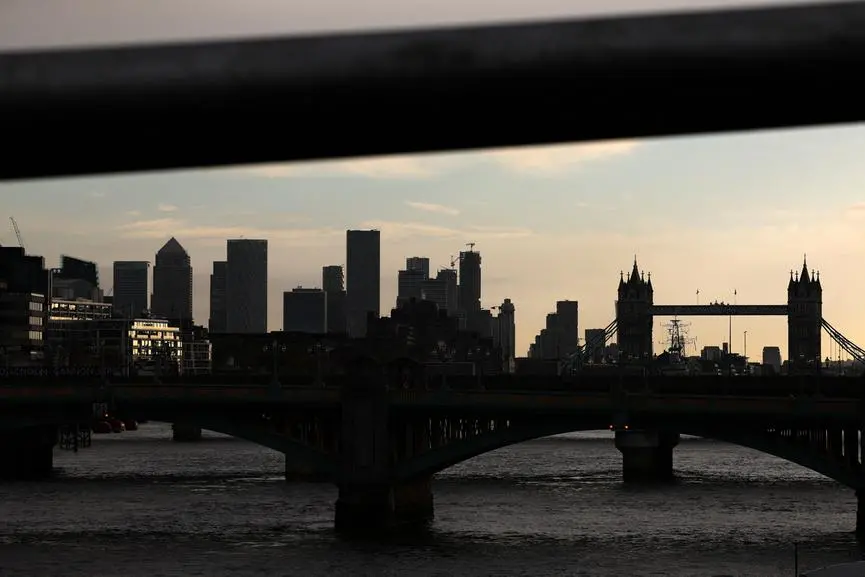PHOTO
Britain's economy grew for the second straight month in February, official data showed Friday, boosting recovery hopes after it fell into recession in the second half of 2023.
Gross domestic product ticked 0.1 percent higher in February following an upwardly revised 0.3-percent expansion in January, the Office for National Statistics (ONS) said in a statement.
Growth for the first quarter as a whole would signal the end of the UK's recession, and many economists say another contraction now appears unlikely.
"The economy grew slightly in February with widespread growth across manufacturing, particularly in the car sector," said ONS director of economic statistics Liz McKeown.
"Services also grew a little with public transport and haulage, and telecommunications having strong months," she added.
"Partially offsetting this there were notable falls across construction as the wet weather hampered many building projects."
The UK economy shrank in both the third and fourth quarters of 2023, meeting the technical definition of a recession, as high interest rates and a cost-of-living crisis weighed on activity.
- Outlook 'foggy' -
"The sun is finally out but the UK economy outlook remains foggy," said Yael Selfin, chief economist at KPMG UK.
"Despite weaker momentum in February, the economy's ongoing recovery is the latest piece of evidence that the shallow technical recession is already behind us."
She also cautioned that there were "limits to the UK's growth potential", noting "fragile" consumer spending, a weak housing market and uncertainties surrounding this year's upcoming general election.
Capital Economics economist Paul Dales said GDP would need to slump by an "unlikely" 1.0 percent in March in order to spark a first-quarter contraction that would prolong the recession.
"As a result, we can safely say that, after lasting just two quarters and involving a total fall in GDP of just 0.4 percent or so, the recession ended in the fourth quarter," Dales said.
In reaction to Friday's news, British Prime Minister Rishi Sunak declared that the figures "are further evidence that the economy has turned a corner".
Emergence from recession would hand a major boost to Sunak ahead of a general election this year.
His governing Conservatives are trailing far behind Keir Starmer's main opposition Labour Party in opinion polls.
Labour finance spokeswoman Rachel Reeves slammed the Tories over their handling of the economy following news of slight economic growth in February.
"After 14 years of Conservative economic failure, Britain is worse off with low growth and high taxes," she added.
Sunak was however buoyed last month by news that inflation had hit a nearly two-and-a-half-year low of 3.4 percent in February, easing the nation's cost-of-living crunch.
The Bank of England in March held its key interest rate at a 16-year high of 5.25 percent, as inflation remains stubbornly above its 2.0-percent target.





















